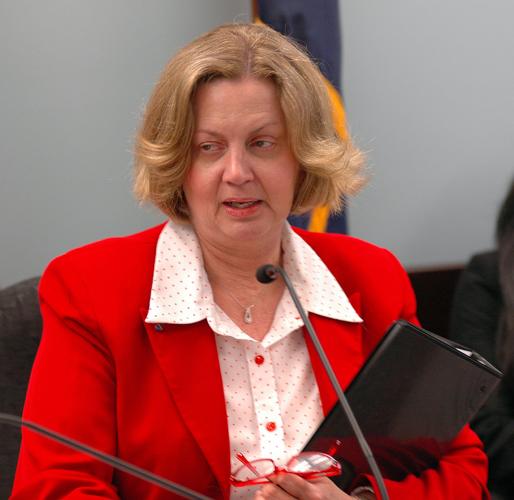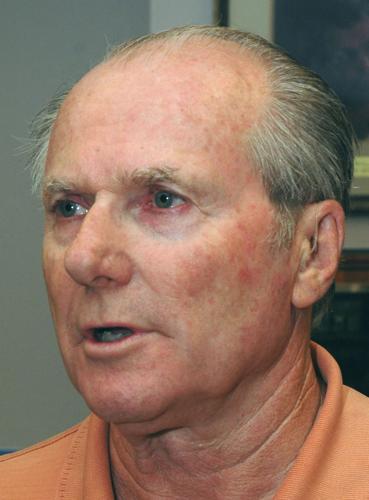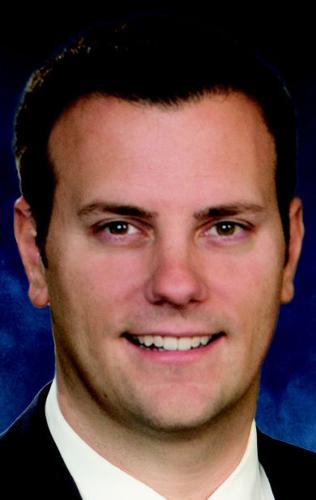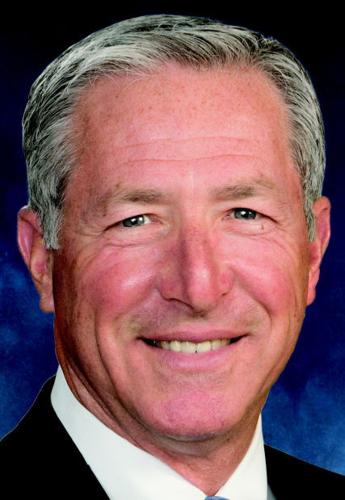The Arizona Corporation Commission used to be a place where policy nerds in the Legislature could quietly round out their political careers while bulking up their salaries and building their pensions.
Not anymore. Questions of integrity have engulfed all five members of the commission and one of the biggest utilities it regulates, Arizona Public Service.
The simmering doubts boiled over Monday when state Attorney General Mark Brnovich filed an action with the Arizona Supreme Court, asking that Susan Bitter Smith, the commission’s chair, be removed from office. The same day, Commissioner Bob Burns asked APS to disclose all of its political spending in the 2014 election.
The commission is a crucial entity in Arizona, serving as the key regulator between monopolies such as the electric utilities and the customers who have little choice but to buy power from them.
Monday’s actions brought two of the commission’s persistent issues to a head. While they were dramatic, even more momentous decisions are ahead, because they will likely spell out just how independent these regulators can be from the companies they regulate on our behalf.
Here’s a rundown of the commissioners, all Republicans, the ethical questions they face, and the political ramifications of those questions.
Susan Bitter Smith
Bitter Smith was a well-qualified Republican candidate when she ran for the commission in 2012 and won, helping oust two Democratic incumbents, but she should never have been on the ballot. She was an acknowledged lobbyist for the cable industry, which is regulated by the commission to the extent it’s involved in telecommunications.
In fact, she makes $150,000 in that role, compared to the $79,500 she makes as a corporation commissioner.
The fact that no one bothered to challenge her candidacy is an embarrassment to her Democratic opponents, Arizona’s journalists and the state’s regulators. As Brnovich explained Monday, Bitter Smith was ineligible in three separate ways to even be a candidate for the commission, because of her financial relationship to telecommunications businesses.
“What we have here is a case where the law clearly prohibits Corporation Commissioner Susan Bitter Smith from holding office,” he said.
No one challenged her till this year, when a solar-industry-affiliated watchdog group, the Checks and Balances Project, talked with a Phoenix radio reporter about Bitter Smith’s side gig. That KJZZ story inspired Phoenix attorney Tom Ryan to file a request with the Attorney General’s Office asking that it pursue removing her from office. That’s what happened Monday.
Bitter Smith accused Ryan of doing dirty work for Democrats by setting her ouster in motion, but that ignores the fact that Gov. Doug Ducey, a Republican, gets to pick her replacement and must pick a Republican. Plus, Republicans may be happier if she’s replaced.
Bitter Smith has been perhaps the most sympathetic to the solar industry of any of the commissioners. She and colleague Burns also circulated a letter in August, asking that any entity that appears before the commission refrain from contributing money in support of or opposition to commission candidates.
That raised the ire of some of the state GOP’s strongest supporters, such as the Arizona Chamber of Commerce. On Monday, the state party’s executive director, Robert Graham, asked Bitter Smith to consider resigning.
Bob Burns
Burns is next in line for conflict-of-interest complaints over his side employment. A citizen filed a complaint in September, the Arizona Republic reported, alleging that when elected he was listed as a lobbyist for the Arizona Telecommunications and Information Council, an industry group.
This case is not as clear-cut as the one against Bitter Smith, in that Burns contests he was a lobbyist at the time and certainly was not the established, paid presence that Bitter Smith has been. The attorney general's office has declined the complaint as a criminal matter, but I won’t be surprised if someone tries to take Burns to the mat the way they did Bitter Smith.
Burns' request Monday was not as strong as it appeared, because he did not ask APS’ parent company, Pinnacle West, to disclose its political spending.
Bob Stump
The Checks and Balances Project has for months been pursuing the text messages that Stump sent on a state-owned cellphone. First it used a public-records request, then the group filed a lawsuit. Stump and the commission originally denied these texts still existed. Then it turned out they did, by the thousands.
The Attorney General’s Office has the phone in question, and a retired superior court judge, David Cole, has been asked to review the messages to determine which are relevant to the project’s public-records request.
The contents are tantalizing because in the run-up to last year’s primary election, Stump exchanged messages with Scot Mussi, who headed a dark-money group, the Arizona Free Enterprise Club, that supported two Republican candidates — Doug Little and Tom Forese. He also exchanged messages at the time with an executive of APS, which is suspected of funding the group.
The implication has been that Stump helped coordinate an APS-funded dark money campaign, but he has repeatedly said the texts are innocuous and will show no such thing.
Tom Forese, Doug Little
The two ran on a ticket last year that swatted down two pro-solar Republicans in the primary and creamed subsequent Democratic challengers. In office, they’ve faced the challenge of showing they are more than APS puppets.
In September, former Corporation Commissioners Renz Jennings, a Democrat, and Bill Mundell, a Republican, filed a formal request that Forese and Little be forced to recuse themselves from a case in which APS asked for an increased monthly charge for customers who have rooftop solar systems. The request cited $3.2 million spent by the Arizona Free Enterprise Club and another dark-money group, Save Our Future Now, to elect the two.
After that filing, APS withdrew its request altogether, but Jennings and Mundell could bring back their request for recusals in the context of other APS business before the commission.
That’s not all
The Arizona Attorney General’s Office is also looking into allegations against former commissioner Gary Pierce. A whistleblower alleged that Pierce secretly met with the CEO of APS while the utility was going through a rate case before the commission.
So, the filing to remove Bitter Smith from office was the easy part — both legally and politically. Any effort by the attorney general to take action against commissioners over their relationships with APS will be a much bigger challenge.














